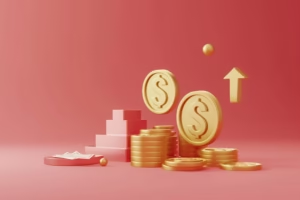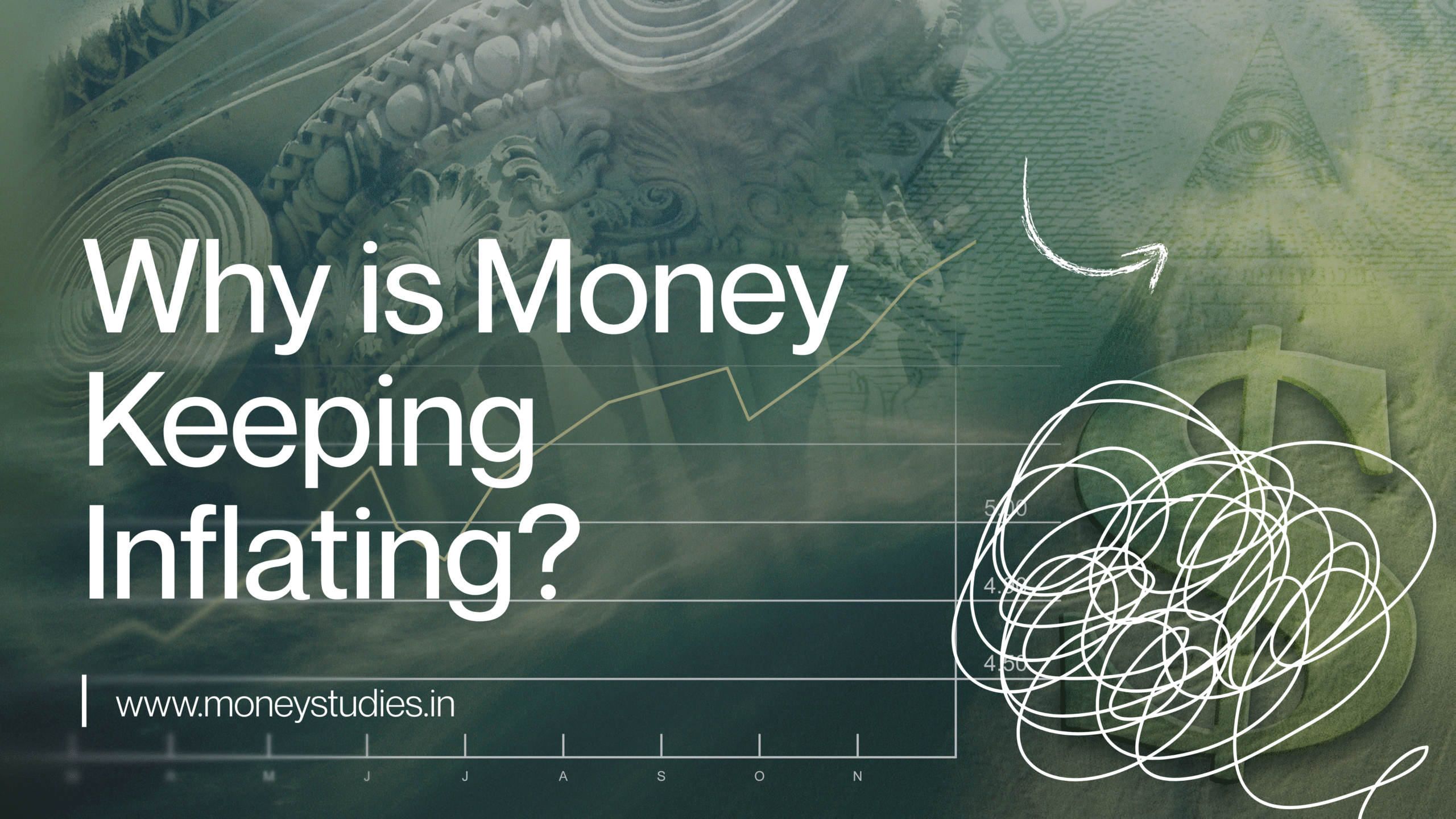Did you noticed that your grocery bills is going up even though you’re buying the same things? Or perhaps the cost of your daily coffee has increased? This’s inflation.
The slow rise in costs over time that is known as inflation means your money doesn’t go as far as it used to. We will go over what inflation is, what causes it, how it is calculated, most crucially how it affects your money and what actions you could take to protect your buying power in this talk.
What Does Inflation Mean?
The rate at which the cost of goods and services rises, thus lowering the buying power of money, is known as inflation. Every dollar you have purchases less of the goods you need or desire as inflation increases.
If inflation is 7%, for instance, a $100 item from last year is now worth $107. Particularly in the peak years following the epidemic, the United States Bureau of Employment Statistics reports that the average yearly inflation rate in the country over the past ten years has varied between the 1.5% and over 9%.
How Do You Measure Inflation?

- The Consumer Price Index, or CPI,
When you are located in a metropolitan area, the CPI notes over time how costs for a particular “basket” of products and services vary. These cover food, lodging, medical attention, and petrol.
2. PPI— Producer Price Index.
The PPI displays the historical changes in the prices of goods produced in the United States. From the seller’s vantage point, it illustrates price fluctuations.
The United States Bureau of Labor Statistics (BLS), along with other organizations, closely reviews these policies and maintains them current. Also under observation by the government and professionals are them.
Why Do Prices Increase In Inflation ?
Many factors can lead to inflation, and they usually cooperate:
1. Demand-induced inflation
This results when demand for products and services exceeds their supply. Consider how stimulus checks encouraged consumers use a greater amount when the supply networks were still recovering—more money chasing fewer commodities.
2. Cost-driven inflation
In this circumstance, companies pass the cost on to consumers by climbing prices, much as labor or raw materials would impact production costs.
3. Built-Inflation (Wage-Price Spiral).
As prices rise, employees seek better pay. Should companies then hike rates once more to pay for salaries, a cycle is set in motion.

How Might Inflation Affect Your Income?
Inflation affects your “daily finances” in addition to altering the markets:
1. One has less money to spend.
That fifty dollars in your wallet is not going as far as it once did. For those who are retired or on a fixed income, this causes significant hardship.
2. Erosion Savings
Money in low-interest deposit accounts loses real value if inflation exceeds the interest generated.
3. Variations in Assets
News about inflation can cause the bond and stock markets to collapse; rising interest rates might devaluate bonds.
4. More Interest Rates
Often in order to control inflation, the Federal Reserve hikes interest rates. This increases the cost of borrowing money for credit cards, vehicle loans, and mortgages among other uses.
5. Improved Cost of Living
Rent, food, petrol, insurance and so forth all add up. Many households are under pressure, particularly considering fast rising prices.
For what benefit does Inflation occur?
Prices rising cause not everyone to lose money. Some groups might gain:
When you have a locked-in loan, you are paying this back with less valuable money.
Real Estate Owners: Typically, inflation raises property values and rents.
Some companies—such as those in charge of luxury brands or basic commodities—may find it simpler to pass on expenses to consumers if they have significant influence over prices.
How can Inflation not be hurting you?

These strategies help you guard your money from inflation—or at least reduce its likelihood.
1. Invest wisely
Invest your money in stocks, index funds, real estate, and Treasury Inflation-Protected Securities (TIPS), among items that will rise more quickly than inflation.
2. Maintain low rates.
If you are considering a large purchase, consider obtaining a fixed-interest mortgage and loan before rates rise.
3. Adjust Your Spending Plan
Track your expenditure to eliminate items you seldom use. A dollar saved counts more when prices are rising.
4. Generate Several Income Sources
Side businesses, property rentals, or dividends allow you to replace your primary source of income lost.
Looking at the World and History
There has been inflation before this as well. Some significant historical instances are:
1970s U.S.: Double-digit inflation drove a lot of Fed activity.
Zimbabwe (2008): Trading goods and using trillion-dollar bills brought about by hyperinflation.
Following the COVID-19 Era (2021–2023): Issues with the supply chain, encouragement initiatives, and a shortage of personnel triggered a global inflation increase.
These illustrations demonstrate the severity of inflation and how rapidly, without control, it can become a significant threat to the economy.
Conclusion
From the cost of your morning coffee to the worth of your retirement funds over time, inflation affects everything.Not only should this be known by economists, but everyone managing money in modern society should also be conscious of it.
Understanding inflation’s dynamics and taking action to protect your wealth will enable you to maintain it on a solid foundation ahead of rising rates.








1 thought on “Inflation 2025: What Is Inflation and How It Affect Your Finances”